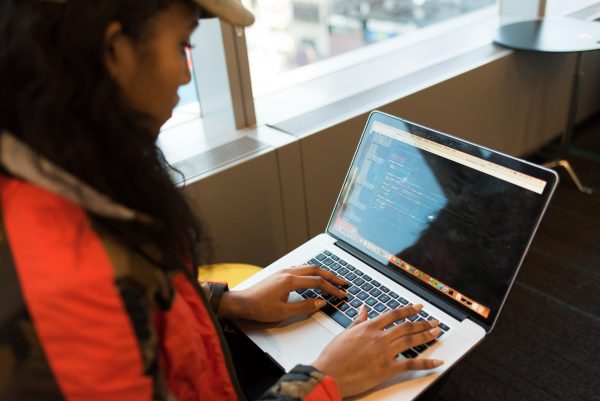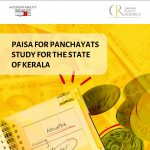
The Importance of Information Portals for Accountability from a Transparency Campaigner’s Perspective
17 January 2022
Having been an intrinsic part of collective efforts to conceive, build and monitor information portals in Rajasthan and Karnataka, not responding to T.R. Raghunandan’s blog post about the issue would be a disservice to the process I have had the privilege of being a part of. The success of the Jan Soochna portal and Mahiti Kanaja I have worked on are not measured by the glitzy portals themselves. It is measured by the institutionalised process of dialogue between civil society and government that preceded it, and has established the minimum norms of such portals.
The portals we see today are the outcome of a four-year-long (and continuing) process of dialogues between the users (the citizens) and the custodians of information (the government). These dialogues – known as “Digital Dialogues”- are platforms where representatives of civil society organisations, unions, campaigns and networks articulate what information is needed, and hear the government’s response on whether the requested information can be provided. They debate the response and arrive at a legally sound justification backing the final decision of whether the information would or would not be disclosed.
These dialogues were not initiated at the request of the government, and civil society was not invited to “validate” the portals. They were claimed by civil society and began with all the odds stacked against them. They were characterised by disinterested government officials who could not fathom why they even had to explain their decision on whether the requested information would or would not be disclosed.
It took dogged effort and assertion to bring the dialogues to a point where they are now. They are organised on a monthly basis under an administrative mandate, and where participation of officials is mandatory. Any denial of requests to make information public are required to be legally justified (particularly under what exemption clause of the Right to Information Act is the disclosure of this information being denied).
The process of these dialogues taught all those of us involved with it, that advocacy is not just about giving advice, and later complaining about the government not following it. It is about holding the government accountable for taking inputs, and demanding reasons behind what inputs were accepted, not accepted, partially accepted and why.
In these dialogues, progress is not linear. Four years since the dialogue process began in Rajasthan, and two years since the launch of the Jan Soochna portal, information of 280 government schemes are disclosed on the portal and has been accessed by more than 10 crore citizens. These figures, however, do not allow civil society collectives involved with the process to rest in satisfaction.
It is important to bear in mind that those of us who believe are campaigners of transparency and accountability cannot rest with the knowledge that citizens asked for information, but did not get it.
The dialogues continue to be held, and standards of expectations have not been allowed to be diluted. In fact, the dialogues were held virtually during the COVID-19 pandemic lockdowns. Critical information such as disclosures on ex-gratia relief payments; the availability of essential medicines and hospital beds; insurance claims coverage, were disclosed on the Jan Soochna portal upon the pursuits of civil society representatives.
Also, these dialogues are not anchored by and limited to an individual. It is a collective effort, where representatives of groups and associations are involved to ensure peoples’ dignified access to social, economic and political rights. This is contrary to the belief that only an “urban civil society” is engaged in the process of giving inputs. For instance, to the nature of information disclosed on Mahiti Kanaja, the forum includes representatives of NREGA unions, pan-state right to health campaigners, an alliance fighting for farmers’ rights to sustainable farming, amongst others.
It is thus disturbing to read the blog state that civil society “doesn’t know how to use information to hold the government to account”. Using information to hold power to account is not the exclusive domain of subject experts. It is an act pursued by millions of ordinary citizens on a daily basis, who tirelessly question vested interests on issues ranging from mining operations; licenses given to education institutions; tracking delivery of basic services such as ration pension; NREGA and housing entitlements, at dire costs to their own life. This is evidenced by the murder of more than 80 RTI activists in the country.
There are many cases of how citizens have used information disclosed on the portals to demand accountability. For example, by exposing discrepancies between ration offtake on the portal and in reality, ration card holders have received the balance foodgrains delivered to their home. Patients who were overcharged over the counter at hospitals have demanded their money back on realising from the portal that the hospital also claimed insurance from the government in their name, and so many more other instances.
This is exactly why so many civil society organisations engage with the process on a completely voluntary basis, as they see how relevant the information would be to the communities they work with. The collective that leads the Digital Dialogues process is also a collective that routinely exercises its right to access all democratic forums available for pursuing their advocacy — whether it involves filing RTIs, petitioning the court, writing opinion pieces, or holding protests. Independence of the civil society collective is paramount
It is important to bear in mind that those of us who believe are campaigners of transparency and accountability cannot rest with the knowledge that citizens asked for information, but did not get it. Information collected, organised and maintained by the government is data owned by the public, and the government is a custodian of it. The government is legally bound to disclose it. And if there has been limited success of ensuring that in the past, it does not mean the pursuit can be given up.
However, this is a point that can be accepted only when there is a realisation that civil society advocacy in a democratic framework does not operate in a binary. One where activists either confront the State, or are co-opted by it. Demanding for information portals through institutionalised platforms open to all requires hard work, and calls for persistence. It also requires civil society to reimagine advocacy in creative and effective ways. Engaging with the government is our democratic right. It is in fact an obligation to the causes and communities we seek to represent.
Rakshita Swamy is with the Social Accountability Forum for Action and Research (SAFAR), and has been a participant in the Digital Dialogues processes of Rajasthan and Karnataka.





